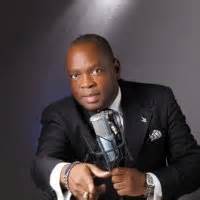In Search of Inspiration: Steve Jobs


By Spence Finlayson
“Your time is limited, so don’t waste it living someone else’s life. Don’t be trapped by dogma, which is living with the results of other people’s thinking.
Don’t let the noise of others opinions drown out your own inner voice. And most important, have the courage to follow your heart and intuition. They somehow already know what you truly want to become. Everything else is secondary.”
The above quote by legendary Steve Jobs is one of my favorite. As we search for inspiration, we take an up close and personal look at the life of Steve Jobs. He did not become successful overnight. There is no such thing as an overnight success.
It took many years of hard work, determination and perseverance to build Apple into the company that it is today. Just take a step back from your MacBook, or put down your iPhone and really think about all that he accomplished, its beyond remarkable. He profoundly changed the way we live.
Steve Jobs was born on February 24th, 1955 and best known as the co-founder, chairman, and CEO of Apple Inc, CEO and largest shareholder of Pixar Animation Studios and a member of The Walt Disney Company’s board of directors.
He is widely recognized as a pioneer of the microcomputer revolution of the 1970’s, along with Apple co-founder Steve Wozniak.
Steve was adopted at birth in San Francisco and raised in the San Francisco bay Area during the 1960’s.
Jobs co-founded Apple in 1976 to sell Wozniak’s Apple 1 personal computer. This duo gained considerable wealth and fame a year later for the Apple 11, one of the first highly successful mass-produced personal computers.
In 1979, after a tour of Xerox PARC, Jobs saw the commercial potential of Xerox Alto, which was mouse-driven and had a graphical user interface (GUI). This led to the development of the failed Apple Lisa in 1983, followed by the successful Macintosh in 1984.
In addition to being the first mass-produced computer with a GUI, the Macintosh instigated the sudden rise of the desktop publishing industry in 1985 with the addition of the Apple LaserWriter, the first laser printer to feature vector graphics. Following a long power struggle Jobs was forced out of Apple in 1985.
In 1997, Apple purchased Steve Jobs NeXT, allowing him to become the former’s CEO once again. He would return the company, which was on the verge of bankruptcy, back to profitability.
Jobs was diagnosed with a pancreatic neuroendocrine tumor in 2003 and died of respiratory arrest related to the tumor on October 5th, 2011.
He said this about dying in one of his now famous quotes “No one wants to die. Even people who want to go to heaven don’t want to die to get there. And yet death is the destination we all share. No one has ever escaped it. And that is as it should be, because death is very likely the single best invention of life. It is Life’s change agent. It clears out the old to make way for the new Right now the new is you, but someday not too long from now, you will gradually become the old and be cleared away. Sorry to be so dramatic, but it is quite true.”
As a motivational speaker and a corporate trainer I often refer to something from Steve Jobs to inspire and motivate the participants.
Carmine Gallo’s “The Innovation Secrets of Steve Jobs” is very powerful and so I would share the seven principles that Jobs used to achieve his breakthrough success according to Gallo :
- Do What You Love. Passion is everything. Innovation doesn’t happen without it. Dig deep to identify your true passion. Steve Jobs was not passionate about computers, he was passionate about building tools to help people unleash their potential. One of the most profound remarks Jobs ever made occurred at the end of one of his last major public presentations. Jobs said, “it’s the intersection of technology and liberal arts that makes our hearts sing.” Ask yourself; “What makes your heart sing? Follow the answer.
- Put a dent in the universe. Passion fuels the rocket, vision directs the rocket to its ultimate destination. In the mid-1970’s personal computers were largely limited to hobbyists who assembled parts from kits. Jobs and co-founder Steve Wozniak had a vision to ‘put a computer in the hands of everyday people.” A bold, specific vision inspires evangelists and sets forces in motion. Jobs once said the role of a leader is to hire the best people and to keep them aligned toward achieving the vision.
- Creativity is connecting things. Steve Jobs believed that a broad set of experiences lead people to conclusions that others might have missed. He was on to something. Harvard researchers spent half a decade studying the world’s greatest innovators. They found that innovators ‘associate’ ideas from different fields and apply them to the product or service they’re working on. Those researchers could have saved themselves a lot of time by simply interviewing Steve Jobs, who used experiences to inspire his best ideas. Jobs didn’t always know where the dots would connect, but connect they did. Jobs took calligraphy in college, a course with no practical application to his life. It all came back later with Macintosh, the first computer with a beautiful typeface, fonts and calligraphy.
- Say no to 1000 things. “Innovation comes from saying no to 1,000 things “said Jobs. When Jobs returned to Apple he dramatically reduced the number of products the company made so each product had an A-team. When Jobs introduced the iPhone in 2007 he pointed out that while other smartphone makers were adding features and buttons, the iPhone would remove them, making it simpler, cleaner and user-friendly.
- Create insanely great experiences. Steve Jobs innovated around the customer experience by benchmarking against the very best models in customer service. When I did my research for a book on Apple Retail model I learned that the Apple Store was inspired by the Ritz-Carlton. Jobs didn’t choose to look at his competitors; he had a bigger vision for what a consumer experience might look like in a retail store selling computers. Create exceptional experiences for every customer, every time.
- Master the message. Steve Jobs was a master storyteller, but he worked at it. His presentation skills were refined over many years and hours and hours of practice. You can have great ideas but if you cannot convince others to take action on those ideas they won’t turn into truly innovative new products and services.
- Sell dreams, not products. Ultimately Steve Jobs was successful because he sold dreams, not products. When Jobs opened the first Apple Store in 2001 he said the store was not meant to ‘sell computers’. Instead it would ‘enrich lives’. Nobody cares about your product. They care about themselves. Create products that help people achieve their dreams and you’ll win them over. Innovation sits in a lonely place because few people have the courage to dream big, pitch radically different ideas and the conviction to follow through with their idea when they hear the skeptics say, “It won’t work.” Steve Jobs followed his heart and didn’t let anyone stand in the way. “Don’t let the noise of others opinions drown out your own inner voice. “ Jobs once said “And most important, have the courage to follow your heart and intuition. They somehow already know what you truly want to become.”
Steve Jobs was worth a million dollars when he was 23, $10 million when he was 24, and over 100 million when he was 25. He was also one of the youngest ‘people ever to make the Forbes list of the nation’s richest people and one of only a handful to have done it themselves, without inherited wealth.
Steve Jobs said “Your work is going to fill a large part of your life and the only way to be truly satisfied is to do what you believe is great work. And the only way to do great work is to love what you do. If you haven’t found it yet, keep looking. Don’t settle. As with all matters of the heart, you’ll know when you find it.” This is so true. I encourage you to find something that you can do 24 hours a day and still have a smile on your face.
He went on to say “Remembering that you are going to die is the best way I know how to avoid the trap of thinking you have something to lose. You are already naked. There is no reason not to follow your heart. And finally, Steve Jobs said “Getting fired from Apple was the best thing that could have ever happened to me. The heaviness of being successful was replaced by the lightness of being a beginner again. It freed me to enter one of the most creative periods of my life.”

Spence M. Finlayson is a Bahamian International Motivational Speaker and Corporate Trainer. He is the founder & CEO of The Phoenix Institute For Positive Development & Empowerment, a human resources development firm locally based with a global reach. He can be reached at 601-4291 or by email at [email protected]



